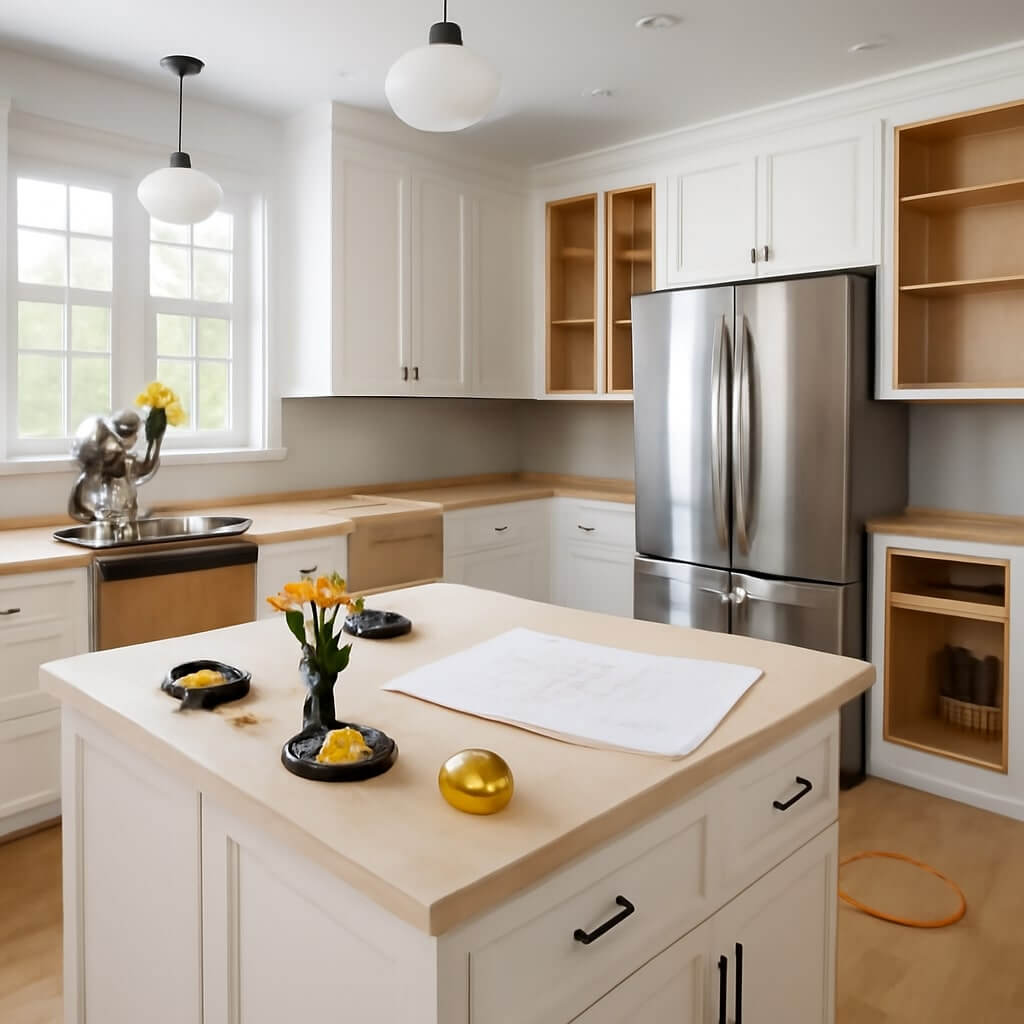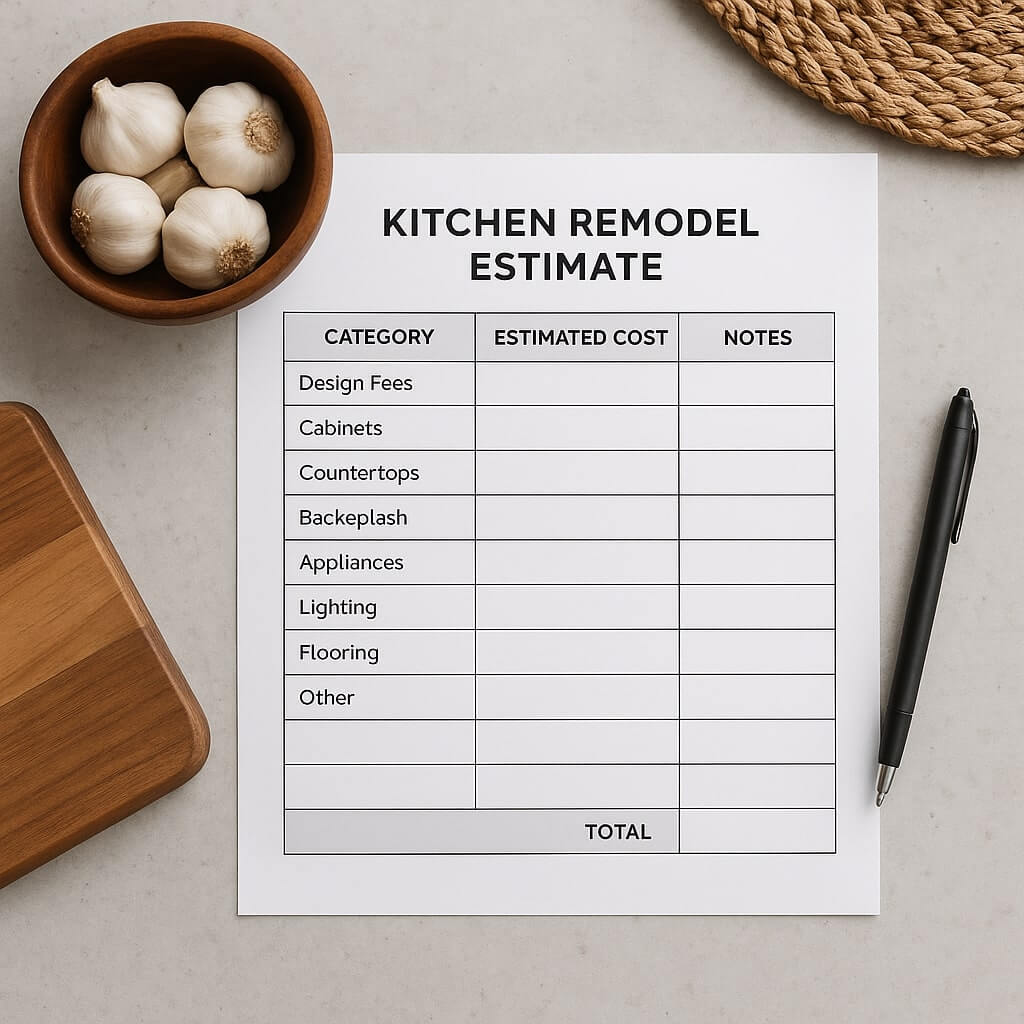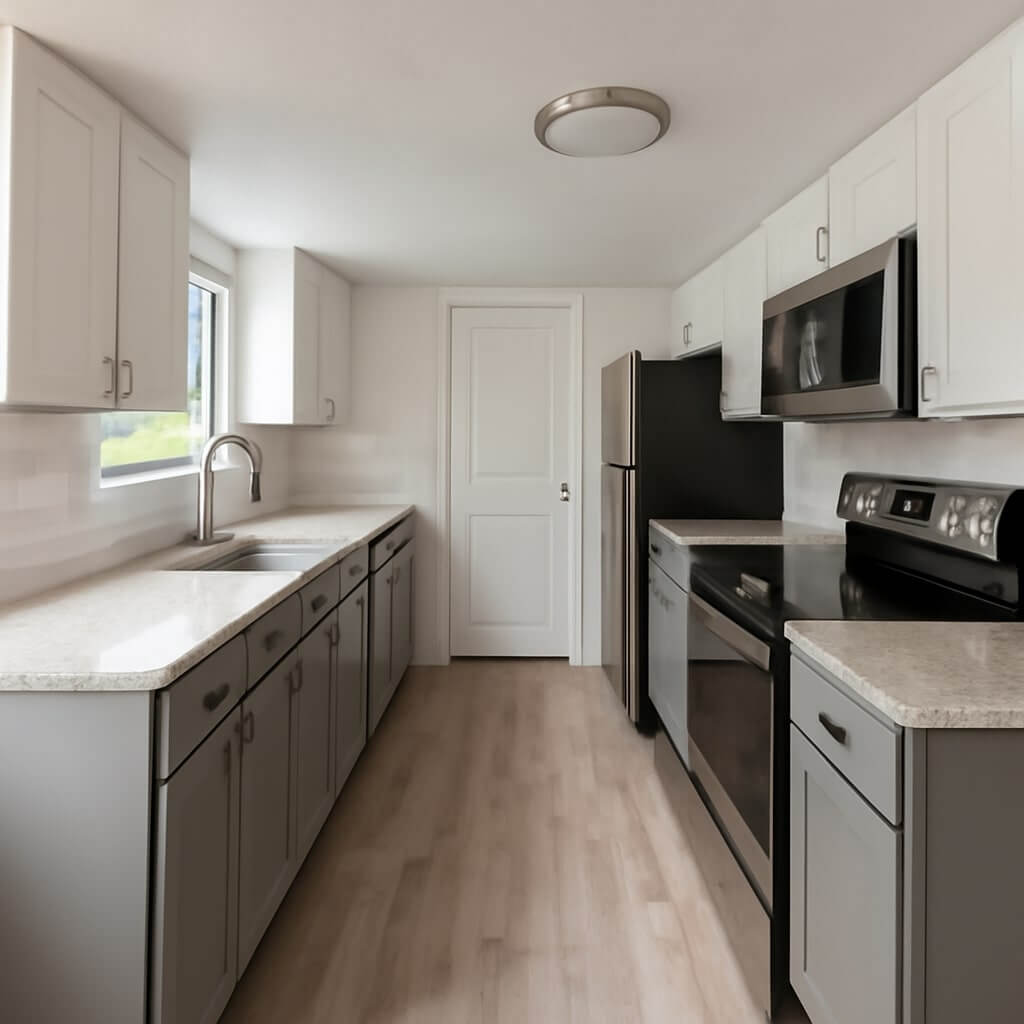When planning a kitchen remodel in Minneapolis, estimating costs accurately is vital. You’ll want to start by evaluating your current layout and identifying any functional issues. Next, researching material costs and understanding local labor rates will help you make informed decisions. But that’s just the beginning. There are several key factors to take into account that can greatly impact your overall budget. Let’s explore those essential tips to guarantee your project stays on track.
Key Takeaways
- Assess your kitchen’s current layout and identify areas needing improvement to establish clear design goals and budget priorities.
- Research material costs and quality for cabinets, countertops, and flooring to make informed decisions aligned with your budget.
- Factor in local labor costs by obtaining multiple quotes from qualified contractors to ensure competitive pricing and quality work.
- Create a detailed budget plan with categories for all expenses, tracking both estimated and actual costs throughout the remodel process.
- Set aside an emergency fund of 10-20% of your overall budget to cover unexpected expenses and maintain financial control.
Assess Your Current Kitchen Layout and Needs
Before diving into your kitchen remodel, it’s essential to assess your current kitchen layout and needs to guarantee the changes you make will enhance functionality and aesthetics.
Start with a kitchen functionality assessment to pinpoint problem areas, like limited counter space or inefficient storage. Identify how you use the kitchen daily, noting any pain points.
Implement layout optimization strategies, such as the work triangle concept, to improve workflow between the stove, sink, and refrigerator.
Research Material Costs and Quality
Once you’ve assessed your kitchen layout and identified your needs, the next step is to research material costs and quality.
Start by exploring various material types, such as cabinets, countertops, and flooring. Compare prices from different suppliers to get a clear picture of your budget.
Pay attention to quality comparisons; higher-quality materials often offer better durability and aesthetics, which can be worth the investment.
Consider both the initial costs and long-term value, as cheaper options may require more frequent replacements.
Gathering this information will help you make informed decisions that align with your vision and budget.
Factor in Labor Costs
Labor costs play an essential role in your kitchen remodel budget. When estimating expenses, you’ll need to account for local labor rates, which can vary considerably based on your project’s scope and complexity.
Hiring a contractor with extensive experience might cost more upfront, but their expertise can save you time and prevent costly mistakes. Be sure to get multiple quotes from contractors to compare labor rates and assess their qualifications.
Create a Detailed Budget Plan
Creating a detailed budget plan is essential for a successful kitchen remodel, as it helps you stay on track and avoid unexpected expenses. Start by outlining your kitchen design goals and prioritize your spending. Use budgeting strategies to allocate funds wisely across different areas.
| Category | Estimated Cost | Actual Cost |
|---|---|---|
| Design & Planning | $1,500 | |
| Cabinets | $5,000 | |
| Appliances | $3,000 | |
| Countertops | $2,500 | |
| Flooring | $2,000 |
This table can guide your financial planning effectively.
Account for Unexpected Expenses
While planning your kitchen remodel budget, it’s crucial to account for unexpected expenses that can arise during the process. Even the best-laid plans can encounter cost overruns, whether from hidden structural issues or material price hikes.
To safeguard against these surprises, set aside an emergency fund—typically around 10-20% of your overall budget. This cushion will help you manage any unforeseen costs without derailing your project.
By proactively preparing for these potential setbacks, you can maintain financial control and guarantee your kitchen remodel proceeds smoothly and successfully.
Consider Financing Options
Before diving into your kitchen remodel, it’s wise to explore various financing options that can ease the financial burden.
Consider different loan types, like personal loans, home equity loans, or lines of credit. Personal loans often provide quick access to funds, while home equity options tap into your property’s value.
Each financing option has its pros and cons, so assess your budget and repayment capabilities carefully. Review interest rates and terms to find a plan that aligns with your financial situation.
Get Multiple Quotes From Contractors
Getting multiple quotes from contractors can greatly impact your kitchen remodel’s budget and quality.
Reach out to at least three contractors to compare pricing, services, and timelines. Don’t just focus on cost; evaluate contractor credentials, including licenses, insurance, and past project reviews. This guarantees you’re working with qualified professionals who can handle your specific needs.
Discuss project timelines to understand how long each contractor expects the remodel to take, as this can affect your overall schedule.
Conclusion
By following these essential tips, you can effectively estimate your kitchen remodel costs in Minneapolis. Start by evaluating your current layout and needs, then research materials and labor while creating a detailed budget. Don’t forget to account for unexpected expenses and explore financing options. Finally, getting multiple contractor quotes will guarantee you make informed decisions. With careful planning and preparation, you’ll be well-equipped to create the kitchen of your dreams without breaking the bank.




